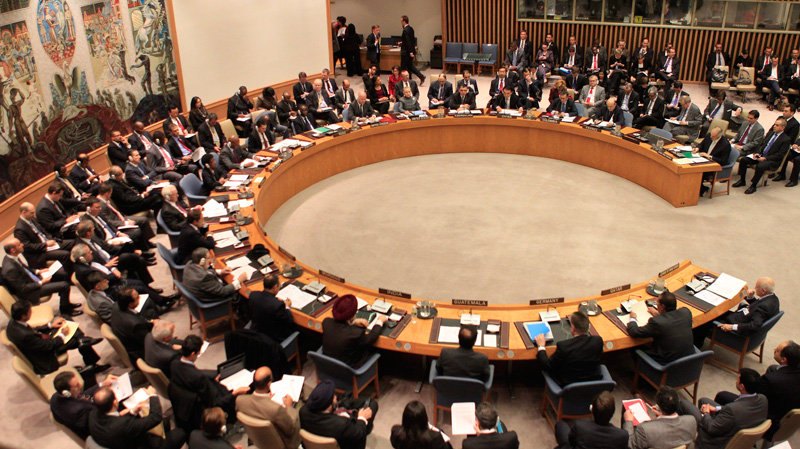By: Nabila F. Qureshi
In the worst violence Yemen has seen in several months, four days of bloodshed resulted in over 75 people killed and hundreds more injured in the capital of Sanaa. Troops loyal to President Ali Abdullah Saleh opened fire on protesters, sniping civilians from rooftops while other security forces dispersed tear gas in an attempt to quell protests. Government forces also reportedly began shelling and flying military planes over districts of Sanaa currently controlled by soldiers who defected to the protesters’ side months ago.
Since January, Yemeni citizens inspired by the Arab Spring have voiced their frustration with the nepotism, corruption, and poor economic conditions that have prevailed under Saleh’s 33 years of leadership, demanding a change in regime. The popular youth-led revolt has illuminated and forced into the open long-standing rivalries between three elite factions within the regime: President Saleh’s family, the influential al-Ahmar family, and leading army officer, General Ali Mohsin. In June, clashes between the factions came to an abrupt halt when a bomb attack on the presidential compound left Saleh badly injured. Vice President Abdrabuh Mansur Hadi was appointed to rule in his stead while the President continues to recover in Saudi Arabia.
Tensions began to resurface in early September, however, when President Saleh authorized Hadi to begin negotiating an agreement with the 6-member Gulf Co-operation Council for a peaceful transition of power to the opposition. Though the Vice President claimed he would sign an agreement within a week of the start of negotiations, Saleh has refused to resign and promised to return to Yemen, sparking renewed demonstrations across the nation. Protests continue as civilians voice their indignation at the government crackdown and the perceived lack of an international response.
Though the United States, European Union and other members of the United Nations Human Rights Council urged the Yemeni government to cease the use of force against protestors, there is little indication that the international community is willing to exert tangible pressure on Saleh’s regime to comply. Yemen’s deputy information minister, Abdu al-Janadi, denies that attacks on protesters have been orchestrated by the government, claiming that “unknown assailants” are responsible. The Minister of Trade and Industry, Hisham Sharaf, has similarly tried to deflect accusations by arguing that there are forces within the opposition linked to al-Qaeda who have initiated the violent clashes to derail any attempts at a peaceful resolution. According to Sharaf, the current regime gave specific orders not to fire on protesting civilians. The opposition, in contrast, contends that the attacks on demonstrators are part of a government ploy to obstruct any chance of agreement, so that Saleh may remain in power.
Even if President Saleh is eventually ousted from power, Yemen’s political trajectory remains uncertain. The president’s son and nephews retain key positions in the country, controlling the Republican Guard and other elite security and intelligence units. The al-Ahmars, another elite family and one of the factions against whom the Saleh family has been contesting for power, similarly are unwilling to relinquish any political control. Yemenis fighting for substantive government reform may be faced instead with the prospect of a mere dynastic reshuffle if Saleh steps down.
Socio-Economic Security Concerns
Though Yemen’s outbreak of protests was roughly concurrent with those of Egypt and Tunisia, its future may not parallel that of its Arab neighbours so closely. Yemen is the poorest nation in the Arab world, and the repercussions of its current political unrest have already deeply permeated the state. According to a recent report by Oxfam, “a protracted political stalemate over much of the past six months has left the [Yemeni] government in paralysis, prompting a fuel crisis that has brought the economy to the verge of collapse.” Decreased production and revenue in the oil industry have left the state, whose economy heavily depends on the resource, in a desperate state of affairs.
The challenge of Yemen’s economic instability is being further exacerbated by a severe food crisis: 7.5 million Yemenis, who constitute a third of the entire population, are going hungry each day. According to the International Food Policy Research Institute (IFPRI), Yemen ranks among the ten most food-insecure nations in the world. The inflation of food prices, already on the rise over the past two years, has been accelerated by the protests and unrest – leaving millions of Yemenis struggling to purchase even the most basic food items such as rice, flour, and sugar.
Yemen is particularly vulnerable to fluctuations in global food prices: sales of its diminishing oil supplies finance 90% of its imports of staple foods, and between 70% to 90% of its food supplies altogether are imported. Emad Qayed Ab Garash, the deputy executive director of the Yemeni Organization for Defending Rights and Freedoms, argues however, that the government bears far more responsibility for rising food prices than do global fluctuations. The state, for example, lacks a system of standardized pricing for food. In order to pressure an end to demonstrations, Garash claims, the government has deliberately failed to control prices, enabling merchants to arbitrarily increase prices to keep pace with inflation.
Widespread poverty, unemployment, and food insecurity are fueling the citizenry’s frustrations with the Saleh regime; however, these challenges will be very difficult for any possible new regime to manage. Millions of Yemenis have responded to the food crisis by decreasing their food intake to one meal per day or less, but this clearly cannot serve as a sustainable solution for human development in a state that so desperately needs it. Yemen is facing what many are calling a humanitarian crisis, and unless a peaceful political resolution is soon reached, the combination of food shortages, political violence, and economic crisis will continue to spiral down into a mire of tragic consequences for the Yemeni people.
Further Reading: Yemen unrest: Death toll from Sanaa clashes tops 50; What Saleh’s departure means for Yemen’s future; Food Crisis Plagues Yemen; Yemen unrest: A deadly game of elite brinkmanship; Street clashes resume in Yemeni capital; Clashes Erupt for 2nd Day in Yemeni Capital, as Troops Fight Defectors
Disclaimer: Any views or opinions expressed in this article are solely those of the author and do not necessarily represent those of the NATO Council of Canada.



